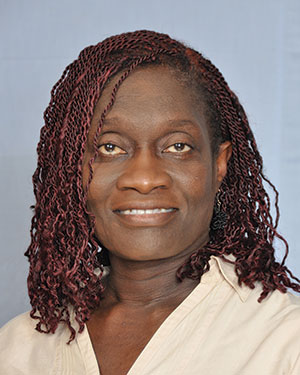By Zara Houshmand
 Theo Sowa
Theo Sowa
Theo Sowa, CEO of the African Women’s Development Fund, examined the dark paradox of how ubuntu is valued even as women’s and children’s rights have reached a state of crisis in Africa, with extreme violence against women in internal conflicts, and the suffering that is routinely imposed by enforcement of traditional practices such as child marriage. Challenges to the dignity and respect of women and children are a global problem not special to Africa, but seem bitterly intensified there given the expectations of ubuntu.
Sowa cast her presentation in the mold of experiential storytelling in the African tradition. In the spirit of recognizing strengths, she offered stories of how ubuntu was practiced under the harshest of circumstances in ways that deserved to be honored and celebrated: how the people of Africa donated for disaster relief in Haiti; how grandmothers in eastern South Africa adopted multiple children, not just their neighbors but also from other villages, who were orphaned by the HIV-AIDS crisis; and how Liberian women peace activists from different regions, clans, and classes worked together to end the civil war by forcing the Liberian war lords to negotiate peace.
She told a story that she had learned from Leymah Gbowee, who won the Nobel Peace Prize for her peacemaking work in Liberia. In solidarity with the women of the Congo, the Liberian women had brought a group of international journalists to talk to the Congolese women about their experiences in hopes of change. The first woman told a heart-breaking story of how she had been raped multiple times, watched her children die, and had her house set on fire. She had lost everything and her community was destroyed. At the stage where it seemed impossible to listen to another word, she turned around and said, “And then the women came. They spoke to me and they held me. They comforted me and they helped me put my life back together again. They helped me feel like a human being again.” One woman after another told similar stories of terrible suffering, which then turned around with the words, “And then the women came…” The journalists’ questions focused on details of the horrors they had survived, but Gbowee called them out for not focusing instead on the recovery, the strength in sisterhood and motherhood, and the rebuilding of the women’s lives.

The problems, Sowa emphasized, are systemic and need to be understood in the context of power relationships rather than individual failings: You do not have to be an evil man to benefit from a patriarchal system that holds women back, and you don’t have to be a vulnerable woman to be discriminated against within that system. As a feminist, she sees the system as the enemy, and individual men as possible allies like the young Zimbabwean who told her: “I do not need the submission or the oppression of a woman or of another human being to make me know that I am a man.”
The question ultimately is how to move forward, using the principles of ubuntu to build the world we want to see, where human rights means the equality and wellbeing of all human beings, including women, children, and also Mother Earth.
DISCUSSION
Reflecting on Theo Sowa’s inspiring portrayal of the healing power of ubuntu as a social resource in tragic circumstances, Lily Mafela suggested that African leadership at the national and local levels might learn from such models. They would benefit from adapting communal social structures that are inclusive, consultative and collaborative, and that recognize our shared destiny. She offered the example of the granaries traditionally located at a chief’s home but not in his private possession, to which everyone contributed at harvest time and which supported the community in times of scarcity and famine.
Thupten Jinpa observed that it is not only Africa where it is difficult to explain how a deeply rooted philosophy like ubuntu is at odds with the reality of cruel violations. A similar gap between teaching and action is seen in the atrocities against the Rohingya minority in the Buddhist country of Myanmar. He noted too that the cohesion and collective pressure of traditional societies—whether African or the Tibetan culture he himself was born into—can have oppressive as well as healing effects, and he described how his own father worried excessively about others’ opinions. The systemic nature of such social pressures means that men don’t need to be bad people to behave cruelly when they perceive that their manhood is being challenged. He related the story of a film that showed how one father’s defiant stance against social taboos that held back his daughters changed the culture of an entire area.
Sowa concurred on the need for traditional cultures to adapt and grow. She gave the example of the practice of wife inheritance in Kenya, where a widow is inherited by a brother or close relative of her deceased husband, and vulnerable to sexual abuse. In Sowa’s own clan, this custom has adapted into a symbolic and protective relationship, a communal responsibility for the widow’s wellbeing, without the physical abuse.
Mhondoro Mandaza lamented that problems of the abuse of women’s and children’s rights were seen by men as problems to be solved by women, where in fact the entire community, whether village or nation, needed to take responsibility for correcting the situation: “Because in a family, your problem is my problem. And my wife’s problem is my own problem.”
Sowa agreed that though the problems are systemic, the system is reinforced by deliberate choices about how power is held. Men also suffer from the virulent masculinity the system demands of them. While progress is being made at the level of laws and codification, there is still much work to be done to change our hearts, minds, and spirits.
